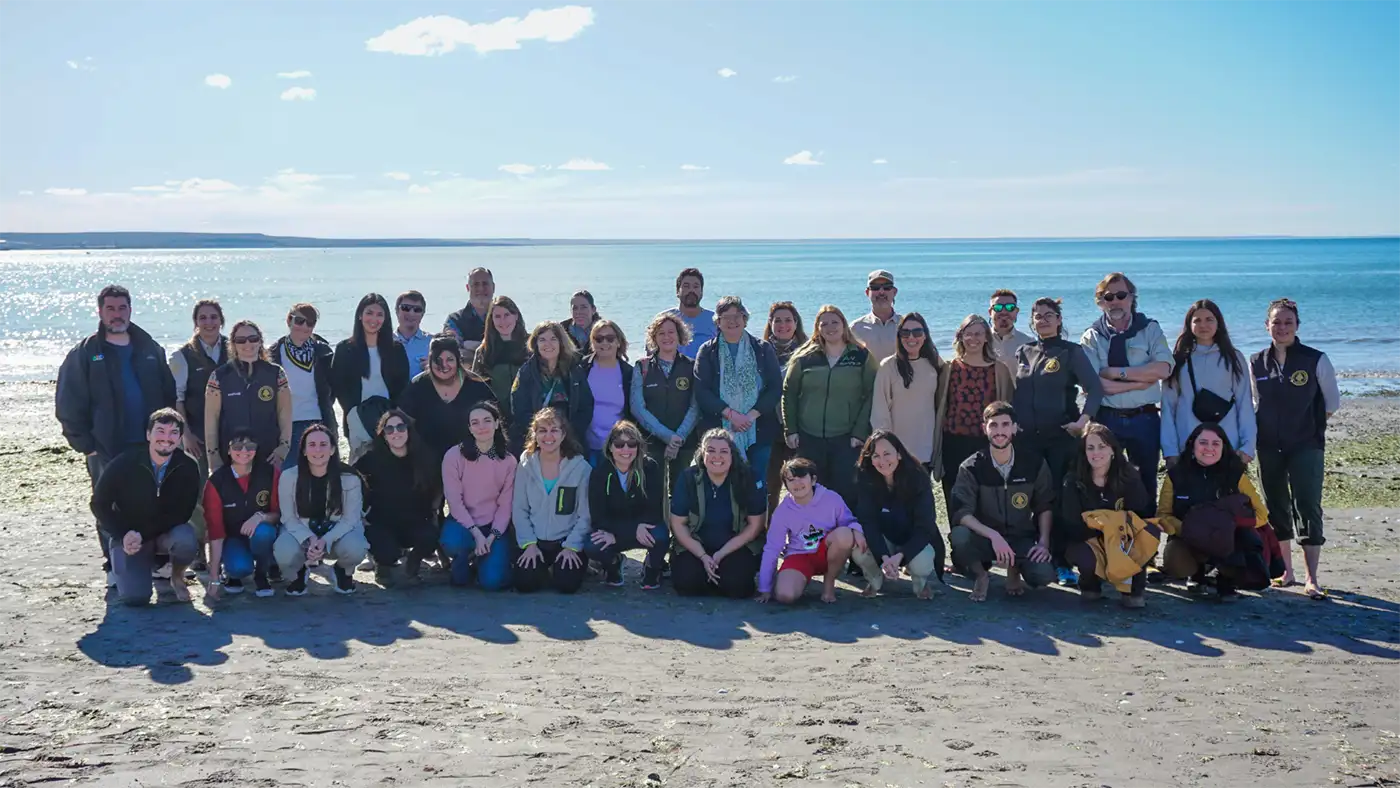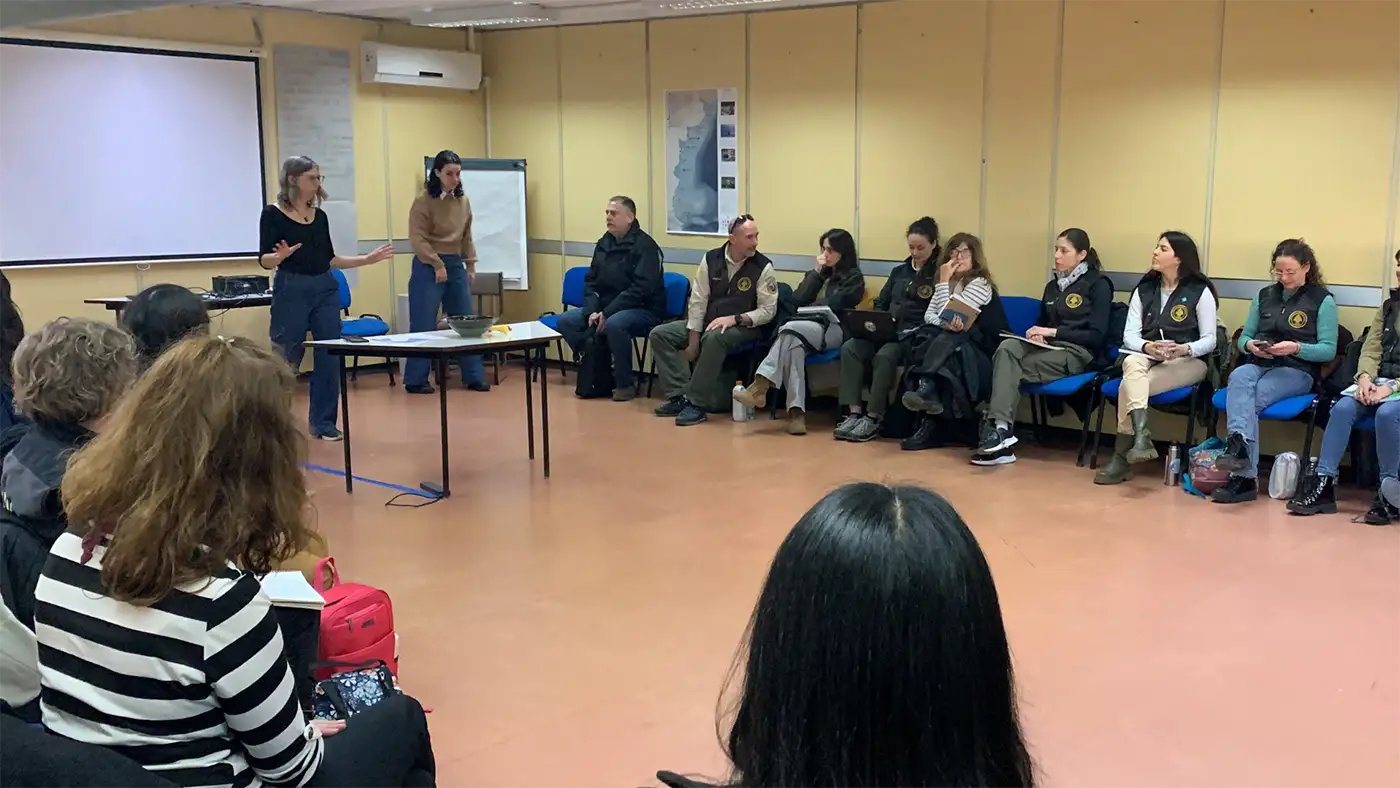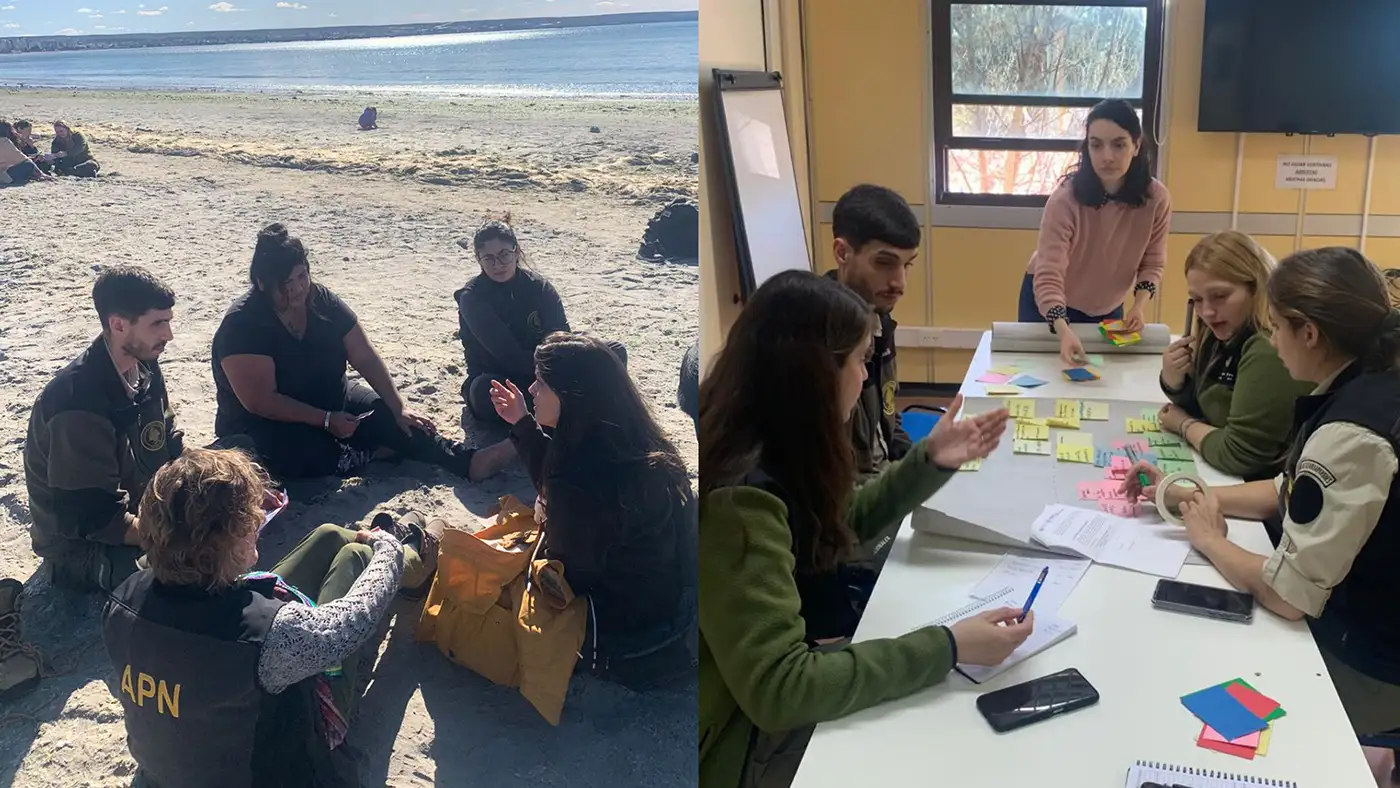
In 2020, Argentina approved the Escazú Agreement, highlighting the importance of access to information, public participation and access to justice in environmental matters.
The Agreement refers to the right to know information related to the environment, necessary for decision-making and access to justice. This regional agreement establishes the right of the people to participate in environmental decision-making processes and the duty of the authorities to guarantee such participation.
In this context, strengthening institutional capacities to contribute to the understanding and effective implementation of these standards is fundamental to promote effective and participatory management of Marine and Coastal Protected Areas (MCPAs) and contribute to the achievement of the conservation objectives for which they were created.
The training “Access to information and participatory processes in the management of Marine Protected Areas” was conducted with the purpose of strengthening the skills of MCPAs managers in the design and implementation of participatory processes, with a focus on conflict sensitivity, in accordance with the standards established in the Escazú Agreement.
This activity is organized by the Forum for the Conservation of the Patagonian Sea and Areas of Influence, accompanied by its strategic partners the Ministry of Tourism and Protected Areas, the Secretariat of Environment and Sustainable Development Control, the Secretariat of Fisheries, the National Parks Administration, and facilitated by Fundación Cambio Democrático (FCD), Fundación Ambiente y Recursos Naturales (FARN) and Aves Argentinas (AA). It was carried out within the framework of the “MaRes Project, to strengthen the resilience of Argentina’s coastal and marine protected areas”, an initiative financed by the European Union.

Managers and technical teams responsible for the management of the MCPAs participated in this activity, including professionals and technicians from the National Parks Administration, and on behalf of the Province of Chubut, the Undersecretariat of Conservation and Protected Areas of the Ministry of Tourism and Protected Areas, the Secretariat of Environment and Sustainable Development Control, the Secretariat of Fisheries, the Directorate of Fauna and Flora, and the Administration of the Península Valdés Natural Protected Area, which were selected because of the relation of their functions with the participatory processes for the management of MPAs.
Alexa Sapoznikow, responsible for Access to Information and Participation expressed: “in the marine environment coexist a great variety of uses, institutions and people, which require an articulated work and the strengthening of collaboration networks. In this course, we are bringing together enforcement authorities from the provincial and national levels, enabling the exchange of views and contributing to a more effective management of the MCPAs”.
The course combined a first virtual stage with a face-to-face workshop. The first stage of theoretical immersion was developed from May 23 to July 12. Through discussion forums, webinars, didactic materials and talks with experts, participants deepened their understanding of the principles of the Escazú Agreement and acquired tools to design and implement participatory processes in their MCPAs, focusing on the cultural dimension and the importance of access to environmental information.
The second stage, of a face-to-face nature, was held on August 14 and 15 in the city of Puerto Madryn. In this instance, the development of participatory tools and strategies was deepened and, through collaborative work and the exchange of experiences, networks among managers were strengthened, contributing to a more effective and coordinated management of MCPAs.

Strengthening capacities to contribute to the conservation of Argentina’s MCPAs
Given the environmental complexity of coastal-marine ecosystems, where the interaction of diverse actors demands the construction of collaborative relationships to transform potential conflicts in pursuit of conservation, this course seeks to provide an integral response, emphasizing the analysis of socio-environmental conflicts.
María Eugenia Vall, General Manager of the Península Valdés Administration, who participated in the meeting, highlighted “the importance of this training in tools for the design of participatory processes and access to information, especially for the managers of Marine and Coastal Protected Areas, who daily must convene and articulate with different stakeholders in an effort to address situations for the benefit of conservation”.
It is expected that the knowledge and tools acquired during the course will allow participants to design and implement more participatory, resilient and effective management strategies. This action is part of a collaborative effort at the regional level to strengthen the resilience of coastal and marine ecosystems.